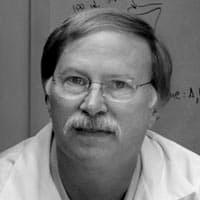
Dr. Garry continues to maintain a broad interest in the mechanisms of enveloped virus entry. He has a long-standing interest in viral diagnostics dating back to his work with the industry scientists who developed the first generation of ELISA and western blot assays to detect serum antibodies to HIV-1. These early studies on viral diagnostics lead to his characterization of an isolate of HIV from a patient who died of AIDS in 1969, the earliest confirmed case of AIDS in the United States. He is currently managing the consortium of scientists who are developing modern diagnostics for several biodefense pathogens.

Kristian earned his doctoral degree from the University of Cambridge in immunology and performed postdoctoral work in Pardis Sabeti’s group at Harvard University and the Broad Institute. He has received several awards, including the Max Perutz Prize in 2008, a Carlsberg Foundation Fellowship in 2009, and was chosen as a PEW Biomedical Scholar in 2016.

Dr. Sabeti is an evolutionary geneticist with extensive expertise studying genetic diversity, developing algorithms to detect genetic signatures of natural selection, and carrying out genetic association studies. Her graduate work at Oxford University focused on host genetic factors in Plasmodium falciparum susceptibility and studying patterns of genetic diversity to identify rapidly evolving genes. At Harvard, she has developed novel methods to detect natural selection, and applied it to the entire human genome, finding many novel candidates.
Her lab focuses on detecting and characterizing signals of natural selection in humans and pathogens and has recently identified candidate genes associated with natural selection for Lassa Fever virus infection in populations in Nigeria, recently published in Nature. Pardis’s awards and fellowships include the Rhodes Scholarship, the Soros Fellowship, L’Oreal For Women in Science Fellowship, the Damon Runyon Cancer Foundation Post-doctoral fellowship, the Burroughs Wellcome Career Award in Biomedical Sciences, and the Packard Foundation Fellowship for Science and Engineering. Pardis is also the lead singer and bassist of the alternative rock band Thousand Days.
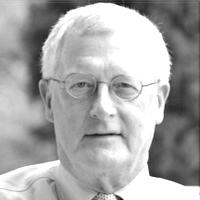
He holds BS and MS degrees in Biological Sciences and Parasitology from Lamar University, Beaumont TX.
Board Members
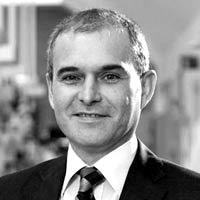
Dr. Branco began his career at the University of Massachusetts at Amherst performing post-graduate research in the field of baculovirology, including design of baculovirus expression vectors and insect cell culture processes. Dr. Branco developed industry experience with a five-year tenure at MedImmune, Inc., where he served important roles in the development of bioassays for MedImmune’s flagship product, Synagis™. In addition, he performed research in the characterization of MedImmune’s leading therapeutic monoclonal antibody (mAb) for transplantation medicine and psoriasis, Siplizumab™. Dr. Branco then transitioned to Human Genome Sciences, Inc. where he led the Stable Cell Development Group and was responsible for the generation and characterization of human mAbs to the chemokine receptor CCR5 that blocked HIV entry into permissive cells. In addition, he developed multiple flow cytometry (FACS) based assays for the high throughput differential characterization of mAbs to 7-TM proteins, and a CCR5 receptor occupancy FACS-based assay that measured the kinetics of an HIV entry inhibiting mAb in blood samples from infected patients. Dr. Branco then joined BioFactura, Inc., a startup biotechnology company, where he served as Chief Scientific Officer, and was responsible for the bacterial and mammalian protein expression element of the aforementioned U01 grant, in addition to the generation and characterization of mAbs to recombinant LASV antigens.
Recently, Dr. Branco co-founded Zalgen Labs, LLC, where he is continuing the characterization of panels of LASV- specific mAbs, in addition to generating recombinant LASV proteins with improved antigenic properties.

A recent discovery revealed why neutralizing antibodies had been so difficult to elicit against Lassa virus, and provided not only the templates for the needed vaccine, but the molecule itself: a Lassa surface glycoprotein engineered to remain in the right conformation to inspire the needed antibody response. This molecule is the basis for international vaccine efforts against Lassa.
Dr. Saphire was also the galvanizing force behind the Viral Hemorrhagic Fever Immunotherapeutic Consortium and is the Director of this organization. This consortium, an NIH-funded Center of Excellence in Translational Research, unites 44 previously competing academic, industrial and government labs across five continents to understand and provide antibody therapeutics against Ebola, Marburg, Lassa and other viruses.
Dr. Saphire’s work has been recognized at the White House with the Presidential Early Career Award in Science and Engineering, with young investigator awards from the International Congress of Antiviral Research, the American Society for Microbiology, and the MRC Centre for Virus Research in the United Kingdom. She has been awarded a Fulbright Global Scholar fellowship from the United States Department of State and a Mercator Fellowship from Deutsche Forschungsgemeinschaft, to develop international collaborations using cryoelectron microscopy to further global health.
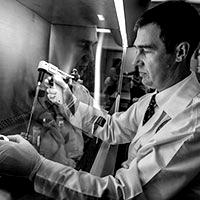
Dr. Schieffelin devotes a significant amount of time to the laboratory. His research is focused on pathogen-antibody interactions. Specifically, he is interested in neutralizing and enhancing antibodies that target dengue virus as well as B cell epitopes in Lassa Fever.
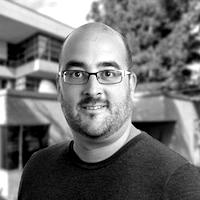
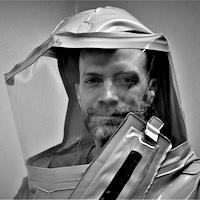
Countries
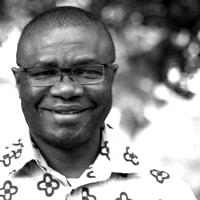
Dr. Happi graduated with a B.Sc. (Hons) from University of Yaounde, Cameroon, and a M.Sc and Ph.D. from University of Ibadan, Nigeria. His Postdoctoral training was conducted at Harvard School of Public Health. His awards and fellowships include Boroughs Wellcome and Bill & Melinda Gates Awards at the 2010 Genome Epidemiology Meeting, European Union-Developing Countries Clinical Trials Partnership (EDCTP) Senior Research Fellowship Award 2009, Scientific Advisory Committee Chair at 2008 Africa Health Research Organization (AHRO), TurnerBiosciences Research Award 2007 and Member of the International Scientific Committee of the 4th MIM Pan African conference on Malaria (2003-2005).
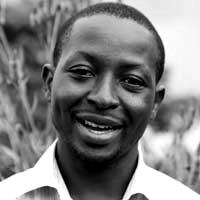
He is actively involved in the community outreach projects that aim to create understanding among the public of how to prevent the transmission and infection of the virus that causes Lassa Fever, as well as tackle misconceptions among the community regarding receiving medical treatment at the hospital. Along with his work in the Lassa ward, Dr. Grant is one of four doctors at the hospital who provide services ranging from primary care to surgical procedures. His work involves balancing both the clinical and administrative sides of medicine.

Dr. Garry continues to maintain a broad interest in the mechanisms of enveloped virus entry. He has a long-standing interest in viral diagnostics dating back to his work with the industry scientists who developed the first generation of ELISA and western blot assays to detect serum antibodies to HIV-1. These early studies on viral diagnostics lead to his characterization of an isolate of HIV from a patient who died of AIDS in 1969, the earliest confirmed case of AIDS in the United States. He is currently managing the consortium of scientists who are developing modern diagnostics for several biodefense pathogens.
Sites


He is actively involved in the community outreach projects that aim to create understanding among the public of how to prevent the transmission and infection of the virus that causes Lassa Fever, as well as tackle misconceptions among the community regarding receiving medical treatment at the hospital. Along with his work in the Lassa ward, Dr. Grant is one of four doctors at the hospital who provide services ranging from primary care to surgical procedures. His work involves balancing both the clinical and administrative sides of medicine.
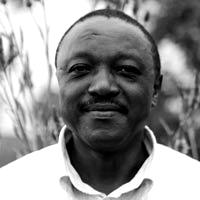
Mr. Goba is responsible for the development and execution of research programs and the oversight of laboratory personnel working at Kenema Government Hospital. He serves as the liaison between Kenema Government Hospital, the Sierra Leone Ministry of Health and Sanitation, and foreign collaborators, including Tulane.
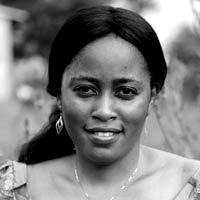
Ms. Jalloh is passionate about the research being conducted by the Consortium in Kenema, and hopes to see more partners join the fight against this killer disease. She also hopes that new funding opportunities will arise to help expand the research and infrastructure improvements currently being undertaken.
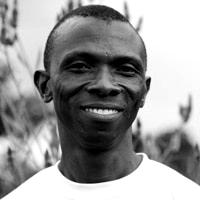
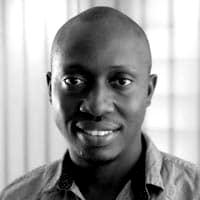
Mr. Momoh works closely with international partners in the VHFC to better understand Category A pathogens such as Ebola and Lassa virus. His work focuses on developing better diagnostic platforms for Lassa, Ebola and other hemorrhagic fever diseases, work related to making viral hemorrhagic fever diseases manageable, and building capacities towards strengthening the health care system in Sierra Leone.
Mr. Momoh also serves as a Lab Instructor at Eastern Polytechnic College in Kenema. In 2007, he obtained a Diploma in Medical Laboratory Sciences from Eastern Polytechnic College. In 2015, he took part in Genomic and Infectious Disease Training organized at Harvard University in collaboration with the Africa Center of Excellence for Genomic and Infectious Diseases (ACEGID). He is also part of the Sierra Leone’s National Infectious Disease Response Team trained by College of Medicine, University of Sierra Leone in collaboration with the Ministry of Health and its international partners. He also has experience in molecular diagnostic techniques and is proficient in conducting hematology, chemistries and microscopy.

Previously, Mr. Sandi worked in the Molecular Unit at the Central Public Health Reference Laboratory in Lakka, Sierra Leone. He currently works with the Tulane University Viral hemorrhagic Fever Laboratory in Kenema, Sierra Leone as a Laboratory Scientist. He is efficient in performing diagnostic procedures in the laboratory ranging from RDT and ELISA to qPCR and even conventional PCR. He also has experience in working with Genexpert, a multi PCR diagnostic instrument which targets the NP and GP. Mr. Sandi is interested in understanding viral genomics specifically in relation to VHFs.


Dr. Happi graduated with a B.Sc. (Hons) from University of Yaounde, Cameroon, and a M.Sc and Ph.D. from University of Ibadan, Nigeria. His Postdoctoral training was conducted at Harvard School of Public Health. His awards and fellowships include Boroughs Wellcome and Bill & Melinda Gates Awards at the 2010 Genome Epidemiology Meeting, European Union-Developing Countries Clinical Trials Partnership (EDCTP) Senior Research Fellowship Award 2009, Scientific Advisory Committee Chair at 2008 Africa Health Research Organization (AHRO), TurnerBiosciences Research Award 2007 and Member of the International Scientific Committee of the 4th MIM Pan African conference on Malaria (2003-2005).
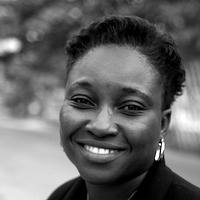



Dr. Garry continues to maintain a broad interest in the mechanisms of enveloped virus entry. He has a long-standing interest in viral diagnostics dating back to his work with the industry scientists who developed the first generation of ELISA and western blot assays to detect serum antibodies to HIV-1. These early studies on viral diagnostics lead to his characterization of an isolate of HIV from a patient who died of AIDS in 1969, the earliest confirmed case of AIDS in the United States. He is currently managing the consortium of scientists who are developing modern diagnostics for several biodefense pathogens.

Dr. Schieffelin devotes a significant amount of time to the laboratory. His research is focused on pathogen-antibody interactions. Specifically, he is interested in neutralizing and enhancing antibodies that target dengue virus as well as B cell epitopes in Lassa Fever.
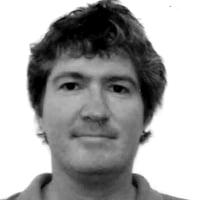
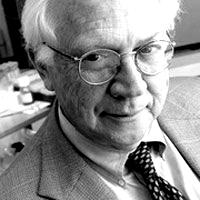
Dr. Robinson has many years of experience in generating human and monkey MAbs that recognize HIV-1, HIV-2, and SIV surface glycoproteins. He was the first to explore the identification of conserved and variant epitopes of HIV-1 SU (gp120) using human MAb produced by EBV-transformed cell lines.
Dr. Robinson has had continuous NIH grant support since 1987 for his work on producing and characterizing HIV-1, HIV-2, SIV human and rhesus MAbs. He is currently a collaborating investigator in the NIH Center for HIV/AIDS Vaccine Immunology (CHAVI) headed by Barton Haynes at Duke University and his is a collaborating investigator in four large consortia projects funded by the Bill and Melinda Gates Foundation.


Kristian earned his doctoral degree from the University of Cambridge in immunology and performed postdoctoral work in Pardis Sabeti’s group at Harvard University and the Broad Institute. He has received several awards, including the Max Perutz Prize in 2008, a Carlsberg Foundation Fellowship in 2009, and was chosen as a PEW Biomedical Scholar in 2016.

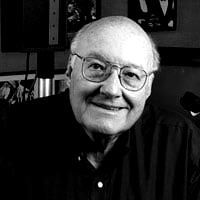


Dr. Sabeti is an evolutionary geneticist with extensive expertise studying genetic diversity, developing algorithms to detect genetic signatures of natural selection, and carrying out genetic association studies. Her graduate work at Oxford University focused on host genetic factors in Plasmodium falciparum susceptibility and studying patterns of genetic diversity to identify rapidly evolving genes. At Harvard, she has developed novel methods to detect natural selection, and applied it to the entire human genome, finding many novel candidates.
Her lab focuses on detecting and characterizing signals of natural selection in humans and pathogens and has recently identified candidate genes associated with natural selection for Lassa Fever virus infection in populations in Nigeria, recently published in Nature. Pardis’s awards and fellowships include the Rhodes Scholarship, the Soros Fellowship, L’Oreal For Women in Science Fellowship, the Damon Runyon Cancer Foundation Post-doctoral fellowship, the Burroughs Wellcome Career Award in Biomedical Sciences, and the Packard Foundation Fellowship for Science and Engineering. Pardis is also the lead singer and bassist of the alternative rock band Thousand Days.



A recent discovery revealed why neutralizing antibodies had been so difficult to elicit against Lassa virus, and provided not only the templates for the needed vaccine, but the molecule itself: a Lassa surface glycoprotein engineered to remain in the right conformation to inspire the needed antibody response. This molecule is the basis for international vaccine efforts against Lassa.
Dr. Saphire was also the galvanizing force behind the Viral Hemorrhagic Fever Immunotherapeutic Consortium and is the Director of this organization. This consortium, an NIH-funded Center of Excellence in Translational Research, unites 44 previously competing academic, industrial and government labs across five continents to understand and provide antibody therapeutics against Ebola, Marburg, Lassa and other viruses.
Dr. Saphire’s work has been recognized at the White House with the Presidential Early Career Award in Science and Engineering, with young investigator awards from the International Congress of Antiviral Research, the American Society for Microbiology, and the MRC Centre for Virus Research in the United Kingdom. She has been awarded a Fulbright Global Scholar fellowship from the United States Department of State and a Mercator Fellowship from Deutsche Forschungsgemeinschaft, to develop international collaborations using cryoelectron microscopy to further global health.

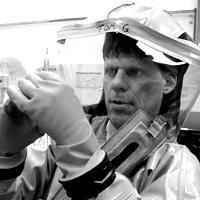
Tom Geisbert holds a BS from Western Maryland College, a MS from Hood College Graduate School, and a PhD from Uniformed Services University of the Health Sciences, Bethesda.



Dr. Branco began his career at the University of Massachusetts at Amherst performing post-graduate research in the field of baculovirology, including design of baculovirus expression vectors and insect cell culture processes. Dr. Branco developed industry experience with a five-year tenure at MedImmune, Inc., where he served important roles in the development of bioassays for MedImmune’s flagship product, Synagis™. In addition, he performed research in the characterization of MedImmune’s leading therapeutic monoclonal antibody (mAb) for transplantation medicine and psoriasis, Siplizumab™. Dr. Branco then transitioned to Human Genome Sciences, Inc. where he led the Stable Cell Development Group and was responsible for the generation and characterization of human mAbs to the chemokine receptor CCR5 that blocked HIV entry into permissive cells. In addition, he developed multiple flow cytometry (FACS) based assays for the high throughput differential characterization of mAbs to 7-TM proteins, and a CCR5 receptor occupancy FACS-based assay that measured the kinetics of an HIV entry inhibiting mAb in blood samples from infected patients. Dr. Branco then joined BioFactura, Inc., a startup biotechnology company, where he served as Chief Scientific Officer, and was responsible for the bacterial and mammalian protein expression element of the aforementioned U01 grant, in addition to the generation and characterization of mAbs to recombinant LASV antigens.
Recently, Dr. Branco co-founded Zalgen Labs, LLC, where he is continuing the characterization of panels of LASV- specific mAbs, in addition to generating recombinant LASV proteins with improved antigenic properties.

Prior to joining Zalgen, Dr. Boisen directed the infectious disease product development program at Corgenix Medical Corporation resulting in numerous rapid diagnostic tests (RDT) for Lassa and Ebola Hemorrhagic Fevers. These products included two breakthrough tests: the ReEBOV Antigen Rapid Test, the first and still only rapid immunological test to receive both FDA Emergency Use Authorization and the WHO Emergency Qualification Listing, and the ReLASV Rapid Test, the first viral hemorrhagic fever RDT to be CE marked for IVD use. Prior to Corgenix, Dr. Boisen worked at Thermo BioStar, Inc. developing rapid biosensor assays including STEC OIA® for the detection of Shigella-like Toxin and GC OIA® for the detection of N. gonorrhea antigen both of which received FDA 510(k) clearance. He has also managed development projects for respiratory disease (Influenza and atypical pneumonia), enteric pathogens (G. lamblia and E. histolytica), and toxins (Staphylococcus enterotoxin B). Dr. Boisen has a BS degree from San Jose State University and a PhD from Tulane University School of Medicine.
Dr. Boisen is the site manager for Zalgen’s Colorado operations and directs the diagnostic products business including grant management, product development, regulatory compliance, production, submission of scientific publications, and interaction with external collaborators including the NIH, FDA, UNICEF, and WHO.

He holds BS and MS degrees in Biological Sciences and Parasitology from Lamar University, Beaumont TX.
